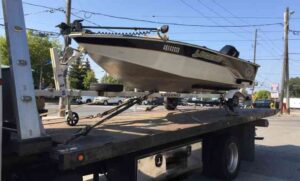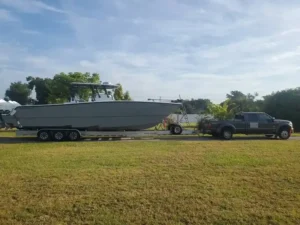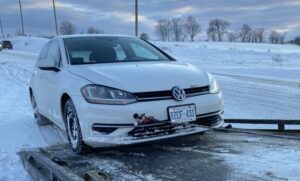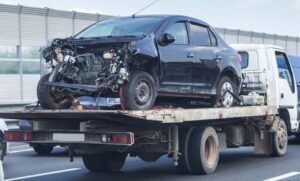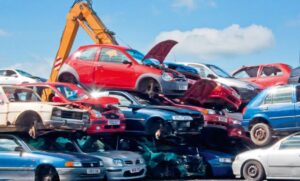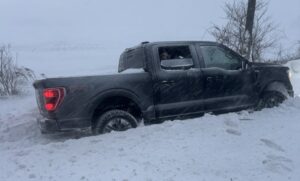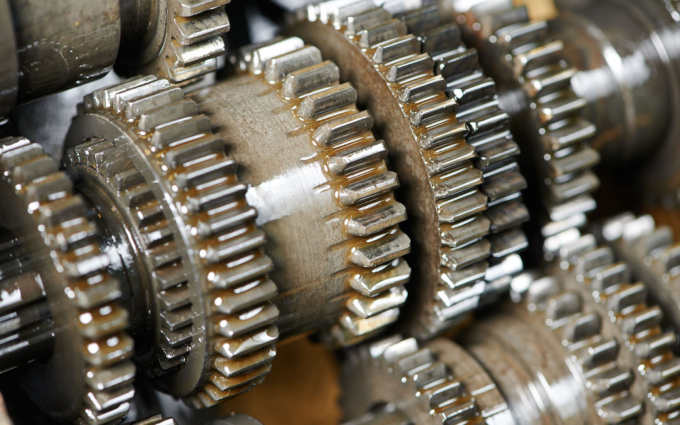Few things are as stressful for a driver as needing a tow—especially when concerns about potential vehicle damage start to creep in. A common and very valid worry is: Can towing ruin my transmission?
The short answer is: Yes, absolutely, if done incorrectly.
The good news, however, is that with proper knowledge, the right equipment, and the expertise of a professional towing service like Pars Towing in Aurora and the greater Ontario area, the risk of damage is virtually eliminated.
Your vehicle’s transmission is one of its most intricate and costly components. Understanding the factors that lead to Towing and Transmission Damage is the first step in protecting your investment.
At Pars Towing in Aurora, we pride ourselves on having the specialized knowledge and state-of-the-art equipment—including flatbed trucks and wheel dollies—to ensure every tow is handled with the utmost care, regardless of your vehicle’s make, model, or drivetrain.
- Learn More >>>>>Heavy duty towing service
Part 1: The Risks – Why and How Towing Can Cause Transmission Damage
Towing can affect a transmission in two primary ways: when a vehicle is being towed by another vehicle (trailer hauling), and when a disabled vehicle is being towed behind a tow truck (vehicle recovery). In both scenarios, the core threat is the same: heat and a lack of proper lubrication.
Risk 1: Improper Vehicle Recovery (When Your Car is Being Towed)
This is the most critical risk when your vehicle breaks down and needs to be recovered by a tow truck. The risk varies significantly based on your vehicle’s drivetrain and the towing method used.
The Automatic Transmission Dilemma
Automatic transmissions are especially vulnerable to damage when improperly towed. This is due to how their internal components are lubricated.
- Lack of Fluid Circulation: In an automatic transmission, the fluid (ATF) is a vital component. It lubricates the moving parts, provides hydraulic pressure for shifting, and dissipates heat. The pump that circulates this fluid is powered by the engine.
- The Engine is Off: When your car is broken down, the engine is off. If the drive wheels (the wheels connected to the transmission and drivetrain) are on the ground and spinning, the internal transmission parts are turning without the lubrication and cooling provided by the fluid pump.
- Catastrophic Failure: Without ATF circulating, the internal components—gears, clutches, and bands—will rapidly generate immense friction and heat. This can quickly lead to overheating, fluid breakdown, warping of parts, or even seizing, resulting in complete transmission failure. This is the number one cause of Towing and Transmission Damage during vehicle recovery.

- Learn More >>>>> Our towing service
The Drivetrain Breakdown: FWD, RWD, and AWD/4WD
The correct towing method hinges on which wheels are connected to the transmission:
- Front-Wheel Drive (FWD) with Automatic Transmission: If towed with the front wheels on the ground, the transmission is at high risk of damage. Solution: The front (drive) wheels must be lifted off the ground, typically with a wheel lift or a dolly, or the entire car should be loaded onto a flatbed tow truck.
- Rear-Wheel Drive (RWD) with Automatic Transmission: If towed with the rear wheels on the ground, the drivetrain (driveshaft and differential) and transmission are at risk. Solution: The rear (drive) wheels must be lifted, or for a tow bar setup, the driveshaft may need to be disconnected entirely. Again, a flatbed tow is the safest option.
- All-Wheel Drive (AWD) or Four-Wheel Drive (4WD): These vehicles present the highest risk because all four wheels are connected to the drivetrain. Towing with any wheels on the ground can cause severe damage to the entire system. Solution: AWD/4WD vehicles must be towed with all four wheels off the ground—which means a flatbed tow truck is the only safe option for recovery.
Risk 2: Overstraining While Towing (Hauling a Trailer)
If you are using your own truck or SUV to tow a trailer (for a boat, camper, or work equipment), the risk shifts from improper recovery technique to operational stress.
The strain of hauling a heavy load—especially over long distances or up inclines common in the Ontario region—forces the transmission to handle more torque and power, drastically increasing its operating temperature and workload.
- Overheating is the Enemy: Heat is the single biggest contributor to transmission failure. The added weight from a trailer causes the transmission to work harder, generating excessive heat. This heat breaks down the transmission fluid, reducing its ability to lubricate and cool, which accelerates wear and tear on internal components.
- Exceeding Capacity: Towing a load that exceeds your vehicle’s maximum tow rating (found in your owner’s manual) is a direct path to transmission, engine, and brake failure.
- Improper Gear Selection: When towing, constantly shifting or staying in a gear that causes the engine to labour or “hunt” for the right ratio places unnecessary strain on the transmission. Using overdrive (O/D) while towing, in particular, should be avoided as it increases heat and wear.
- Learn More >>>>> Light duty towing
Part 2: Damage Prevention – Expert Advice from Pars Towing
Preventing Towing and Transmission Damage is all about preparation, awareness, and professional execution.
Prevention for Vehicle Recovery (When You Need a Tow)
When your vehicle is disabled on the side of a highway in Ontario or a back road near Aurora, your first and most important choice is your towing provider.
1. Always Request a Flatbed Tow Truck
The safest method for towing any vehicle—especially those with automatic, AWD, or 4WD systems—is a flatbed tow truck.
- Zero Risk: A flatbed raises all four wheels completely off the ground. This ensures that no part of the transmission or drivetrain is moving without proper lubrication, eliminating the risk of internal mechanical damage caused by dry spinning.
- Specialty Vehicle Care: For classic, luxury, or high-value vehicles, a flatbed is mandatory to prevent any kind of cosmetic or mechanical contact damage. At Pars Towing, we operate a modern fleet of flatbed tow trucks, making this our default and highly recommended method for all vehicles in the Aurora and GTA area.
2. Communicate Your Vehicle’s Details to the Dispatcher
When you call Pars Towing in Aurora, be prepared to provide the following information:
- Make and Model: This helps our technicians know the specific drivetrain configuration.
- Transmission Type: Is it an Automatic, Manual, All-Wheel Drive (AWD), or Four-Wheel Drive (4WD)?
- Condition of the Vehicle: Is it in neutral? Are the wheels locked? Are there any visible fluids leaking?
This information allows us to dispatch the correct equipment—a flatbed, a heavy-duty wrecker, or a wheel-lift with dollies—and to ensure the tow operator arrives prepared for your specific vehicle’s needs.
3. Know the “No-Go” Towing Methods for Your Car
While professional towers are trained to know this, it is empowering for you, the vehicle owner, to be aware of what to refuse:
- Hook and Chain: This older method can damage the body, suspension, and drivetrain and is rarely used by reputable companies like Pars Towing.
- “Flat Towing” (All Four Wheels on Ground): This is only safe for specific vehicles certified by the manufacturer for recreational towing and requires the transmission to be placed in a specific “neutral tow” mode. Never assume your broken-down car can be flat-towed.

Prevention for Hauling (When You are Towing a Trailer)
If you regularly use your vehicle for hauling, follow these best practices to prevent premature transmission wear:
- Respect the Towing Capacity: Always consult your vehicle’s owner’s manual and never exceed the maximum published towing capacity. This includes the weight of the trailer plus all cargo.
- Monitor for Heat: If your vehicle has a transmission temperature gauge, pay close attention to it. If it starts to climb into the danger zone, pull over and allow the transmission to cool. This is especially important in the summer or when travelling over hills.
- Use the Right Gear:
- Automatic: Engage the “Tow/Haul” mode if your vehicle has one. This function adjusts the shift points to hold lower gears longer, reducing stress and preventing “gear hunting.”
- Manual: Avoid high gears, which can cause the engine to lug. Use a lower gear (e.g., 2nd or 3rd) to keep your engine in its optimal power band and use engine braking on descents instead of riding your brakes.
- Install a Transmission Cooler (If Needed): For frequent or heavy-duty towing, an auxiliary transmission cooler can significantly help manage the operating temperature of the fluid, extending the life of your transmission.
- Maintain Your Transmission Fluid: Towing accelerates the breakdown of ATF. If you tow regularly, you should follow a severe duty maintenance schedule (check your owner’s manual, but this usually means more frequent fluid and filter changes) to ensure the fluid is fresh and effective. Signs of trouble include a rough or delayed shift, or a burnt smell coming from the fluid.
- Learn More >>>>>Medium duty towing service
Part 3: Why Trust Pars Towing in Aurora, Ontario?
For the residents and businesses of Aurora, Newmarket, Richmond Hill, and the wider Ontario area, the choice of a towing company should be about trust and expertise. At Pars Towing, we understand the value of your vehicle and the cost of a transmission repair.
Our Commitment to Safe Towing in Ontario:
- Flatbed Specialization: We utilize modern flatbed tow trucks for maximum safety, especially for high-risk vehicles like AWDs, RWDs, and luxury cars.
- Trained Technicians: Our professional operators are highly trained in the specific towing requirements of all vehicle drivetrains and understand the correct procedures to mitigate the risk of Towing and Transmission Damage. We know the difference between an FWD automatic and an AWD manual and the precise method each requires.
- 24/7 Availability: Whether you are stuck on a busy stretch of Yonge Street or a remote concession road, our fast and reliable service ensures that when you need us most, your vehicle is handled promptly and safely.
When faced with a breakdown or an accident, don’t take a chance with an inexperienced towing company. Protect your investment by choosing a provider who prioritizes the integrity of your vehicle’s most vital systems.and do not take the risk of Towing and Transmission Damage.
For expert, damage-free towing and recovery service in Aurora, Ontario, and the GTA, call Pars Towing. Your transmission’s safety is our highest priority.

